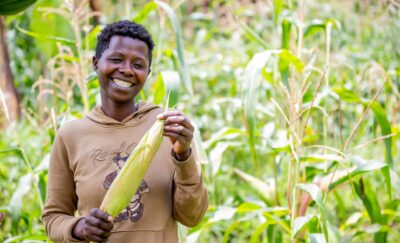News
29 September 2015
Farm Africa welcomes the Global Goals for Sustainable Development
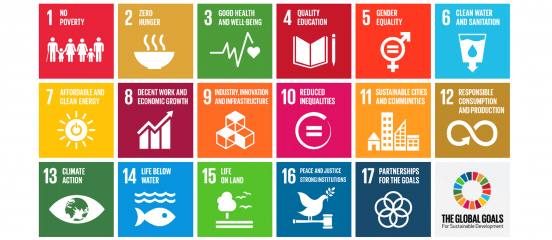
On 25 September 2015, world leaders met at the United Nations General Assembly to commit to 17 Global Goals for Sustainable Development (SDGs), aiming to end extreme poverty, hunger, inequality and injustice, and fix climate change by 2030.
Farm Africa is committed to making these goals a reality.
We believe Africa has the power to feed itself and that smallholder farmers can and will play a key role in achieving rural prosperity in Africa. Sustainable development is at the heart of our ethos: we develop innovative ways of bringing together communities, governments and businesses to kickstart rural economies while managing their natural resources sustainably.
Many of the goals are central to Farm Africa’s work:
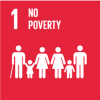 Goal 1: No poverty
Goal 1: No poverty
We aim to reduce poverty permanently by unleashing African farmers’ abilities to grow their incomes. We work with different types of farmers (pastoralists, agro-pastoralists, smallholders and forest dwellers). Their specific situations vary but most are facing economic hardship.
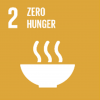 Goal 2: Zero hunger
Goal 2: Zero hunger
Working shoulder to shoulder with farmers, we help the best farming techniques take root and spread so there’s food not just this harvest, but every harvest.
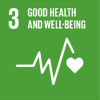 Goal 3: Good health and well-being
Goal 3: Good health and well-being
By helping farmers grow a greater range of nutritious crops such as orange-fleshed sweet potatoes that are rich in vitamin A, Farm Africa tackles one of the biggest killers of young children in Africa: malnutrition.
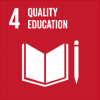 Goal 4: Quality education
Goal 4: Quality education
Many children in Africa miss out on school because their parents can’t afford school fees and essential school supplies such as uniforms or books. By boosting rural incomes, we help ensure more children from farming families are able to regularly attend school.
 Goal 5: Gender equality
Goal 5: Gender equality
Farm Africa believes that one of the most effective ways to build a prosperous rural Africa is to empower women economically. The FAO has estimated that if women were given the same access to productive resources as men, they could increase yields on their farms by 20 to 30% – raising total agricultural output in developing countries by 2.5 to 4%.
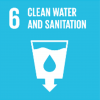 Goal 6: Clean water and sanitation
Goal 6: Clean water and sanitation
We actively promote sustainable approaches such as rainwater harvesting, drip irrigation, the use of drought-tolerant seeds and education on reducing pollution, helping farmers to effectively conserve water resources on which they are so dependent.
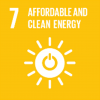 Goal 7: Affordable and clean energy
Goal 7: Affordable and clean energy
Farm Africa helps communities living in forests, such as the Bale Eco-Region in Ethiopia, to protect the forest and reduce carbon emissions, including the use of locally made fuel-efficient stoves that greatly reduce demand for firewood.
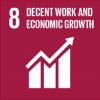 Goal 8: Decent work and economic growth
Goal 8: Decent work and economic growth
Farm Africa believes that Africa, through its smallholder farmers, has the potential to develop rural prosperity. 80% of smallholders own less than two hectares of land, yet contribute over 90% of Africa’s agricultural production and often generate a higher economic value per hectare than larger farms.
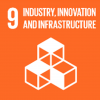 Goal 9: Industry, innovation & infrastructure
Goal 9: Industry, innovation & infrastructure
Lack of access to credit can hold back farmers from building their businesses. Farm Africa helps to improve access to financial services and credit, which helps investment and increases market access.
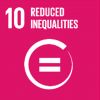 Goal 10: Reduced inequalities
Goal 10: Reduced inequalities
By focusing on rural areas, often in remote locations, Farm Africa helps vulnerable, often overlooked communities to build long-term food security, significantly increase household income and move out of poverty.
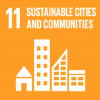 Goal 11: Sustainable cities and communities
Goal 11: Sustainable cities and communities
Through projects such as Market Approaches to Resilience in Ethiopia, Farm Africa is working with local governments to plan and manage green towns and cities.
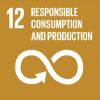 Goal 12: Responsible consumption and production
Goal 12: Responsible consumption and production
Farm Africa’s Participatory Forest Management (PFM) approach, which promotes forest-friendly businesses such as wild coffee harvesting and honey production, is just one example of how we use economic incentives for farmers to conserve the environment.
 Goal 13: Climate action
Goal 13: Climate action
Farm Africa’s PFM approach has been adopted into national and regional government forestry policies, which ensure that 2.5 million hectares of natural forests (half of all forests in Ethiopia) are now being protected. Farm Africa’s REDD+ forestry project is expected to deliver a net 38 million tonne reduction in greenhouse gases between 2012 and 2031.
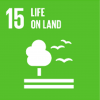 Goal 15: Life on land
Goal 15: Life on land
We promote ‘climate-smart’ and conservation approaches to enable farmers to manage their land and natural resources sustainably, become more resilient to climate change and build long-term food security.
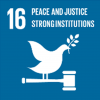 Goal 16: Peace and justice, strong institutions
Goal 16: Peace and justice, strong institutions
By acting as a bridge between smallholder farmers and governments, research institutions, funders, the private sector and civil society, Farm Africa ensures that rural communities have a voice and actively participate in decision-making arenas that determine their future.
Goal 17: P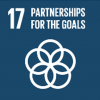 artnerships for the goals
artnerships for the goals
Farm Africa develops partnerships and business models that are pro-smallholder, working with the private sector, government, specialist NGOs with complementary strengths, and research institutions, particularly those based in Africa.
Through Farm Africa’s work that directly aligns with the UN goals Farm Africa strives to make a significant contribution to tackling poverty, hunger and climate change.


